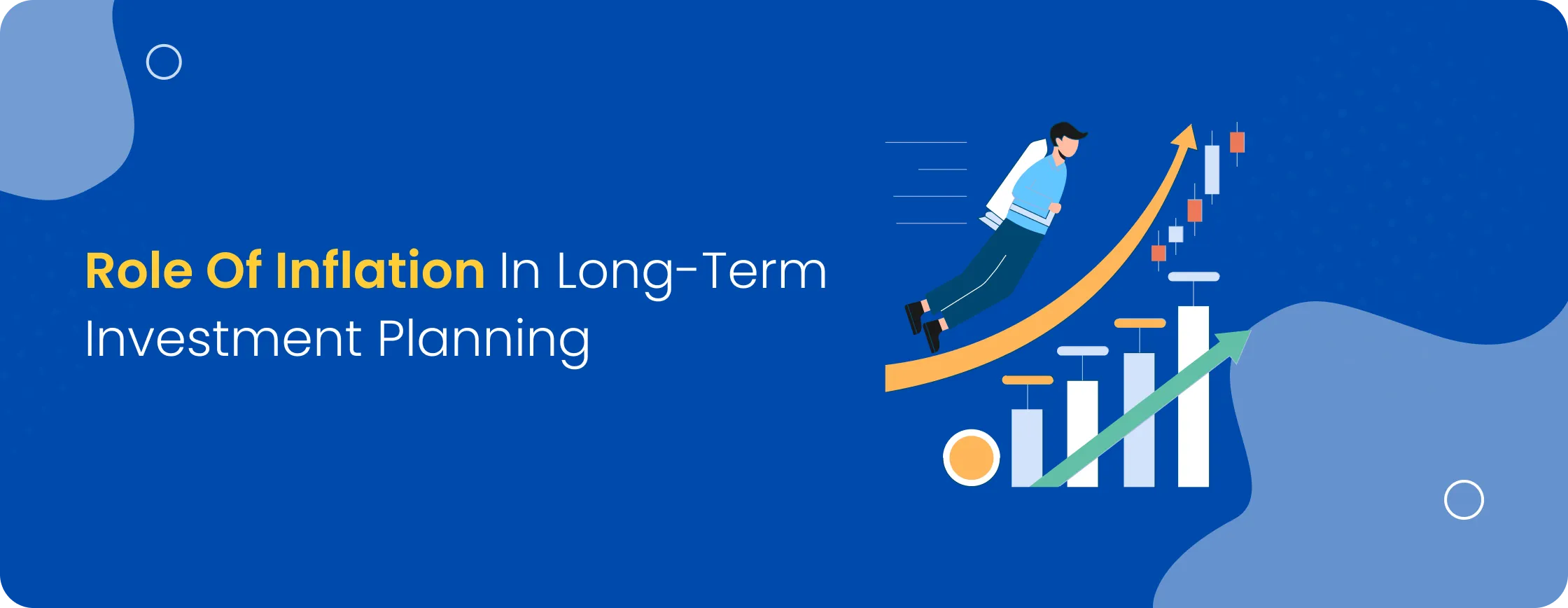It's no wonder then that managing the impact of inflation is an important consideration – and you'll need to actively take the necessary action for its mitigation.
In this article, we'll dive deeper into the concept of inflation, alongside exploring its impact on your investments in the long run.
So, what are you waiting for? Let's dive right in!
What is Inflation?
In simple terms, inflation is the steady rise in the overall price of goods and services over a given period. Rising inflation erodes the purchasing power of a currency, implying that with the same amount of money – individuals can buy fewer goods and services than before.
We use various indices to measure inflation, with the Consumer Price Index (CPI) being a widely used method.
What Causes Inflation?
Several factors contribute to the rising inflation and understanding them is crucial.
Given below is a list of the primary drivers of inflation:
Increasing Demand
When demand for goods and services outpaces their supply, prices tend to increase. This is a case of demand-pull inflation, where buyers compete for limited resources, driving prices upward.
Inadequate Supply
Conversely, cost-push inflation occurs when there is an increase in the cost of production of the goods. It is mainly due to rising raw material prices, supply chain disruptions and geopolitical events.
Increased Money Supply
Inflation is also fueled by an excess supply of money in the economy. If the central banks inject more money into circulation, it can lead to an increase in demand for goods and services, thereby driving up prices.
Fiscal and Monetary Policies
Government policies, both fiscal and monetary, play an important role in shaping inflationary trends. For instance, lowering interest rates or increasing government spending may revive economic activity and result in inflationary pressures.
How Inflation Affect your Long-Term Investments?
The impact of inflation on long-term investments is complex and can significantly influence the real returns of an investment portfolio. Let's understand how:
Purchasing Power Erosion
The most immediate impact of inflation is the erosion of purchasing power. As prices increase, the real value of currency decreases. It means that the future returns of an investment may not provide the same level of purchasing power if it does not outrun inflation.
Inflation and Interest Rates
Inflation and interest rates share a multifaceted relationship. Central banks often modify interest rates to control inflation. Higher interest rates provide a hedge against inflation, but they may also increase borrowing costs and impact certain investments negatively.
Current Inflation Dynamics
To make informed investment decisions, investors must be aligned with the current inflation dynamics. Ignoring inflation could lead to excessive optimistic projections and consequently flawed investment strategies.
Average Inflation Rate
Investors need to assess not just the current inflation rate but also the average inflation rate over the long term. A steady, moderate inflation rate is usually seen as beneficial for economic growth, while excessively high or unpredictable inflation can present difficulties for investors.
Rising Inflation Concerns
The possibility of rising inflation can influence investor sentiment and market dynamics. Certain assets may outperform others during inflationary periods, necessitating a strategic allocation of investments.
How to overcome the impact of Inflation?
Mitigating the impact of inflation requires a strategic approach to investment planning. Here, we have listed a few investment options that have the potential to outpace inflation and preserve your wealth.
Investing in Stocks
Stocks have historically demonstrated the ability to outperform rising inflation over an extended period. Opting for a diversified stock portfolio, which includes dividend-paying stocks, can offer both capital growth and income.
Utilizing Bonds
Although bonds are perceived as less risky than stocks, they might yield lower returns. However, certain types of bonds, such as Treasury Inflation-Protected Securities (TIPS), are specifically crafted to hedge against inflation by adjusting their principal value based on changes in the Consumer Price Index (CPI).
Real Estate Investments
Investing in real estate, including residential and commercial properties, can protect against inflation. Property values and rental income tend to rise with inflation, providing a tangible asset that retains value over time.
Mutual Funds Diversification
Mutual funds with diversified holdings, especially those with a mix of asset classes, offer a balanced approach to managing inflation risk. Professional fund managers strategically make decisions to optimize returns in various market conditions.
The impact of inflation on long-term investment planning is evident, requiring investors to take a proactive stance to safeguard their portfolios. By understanding the causes and effects of inflation, diversifying among various asset classes and staying abreast of current inflation trends, investors can navigate the dynamic financial market environment.
Ultimately, the success lies in devising a well-balanced investment strategy that not only withstands the challenges posed by inflation but also seizes the opportunities that may arise.
If you're looking for a platform/advisor who can help you plan your trades and financial investments while factoring in the inflation, feel free to connect with the experts at mastertrust today!
FAQs
1) What is the long-term benefit of inflation?
When inflation is moderate and stable, it can have certain lasting benefits to the economy. It signals economic growth, as increasing prices are often accompanied by increasing demand for goods and services. Moreover, maintaining moderate inflation enables central banks to influence interest rates, supporting a conducive environment for borrowing and investment.
2) How does inflation affect long-term interest rates?
Inflation plays a vital role in shaping long-term interest rates. Central banks frequently adjust interest rates based on inflationary pressures.
When inflation is high, central banks may increase interest rates to cool off economic activity and manage prices.
Higher interest rates make borrowing more expensive, prompting a reduction in spending and investment. Conversely, during periods of low inflation, central banks may lower interest rates to encourage economic growth by making borrowing more affordable.
3) Why are long-term interest rates more sensitive to inflation?
Inflation has a greater impact on long-term interest rates because of their extended period. Investors in long-term bonds risk eroding purchasing power over an extended period. As inflation erodes the actual value of future cash flows, investors seek higher yields to compensate for this loss. Short-term interest rates, on the other hand, are more influenced by current economic conditions and policies of the central bank.
4) What causes long-term interest rates to rise?
Several factors contribute to an increase in long-term interest rates and inflation stands out as a significant driver. When investors anticipate higher future inflation, they seek higher interest rates to safeguard their purchasing power. Economic growth and increased demand for capital can also drive interest rates higher.
Additionally, changes in central bank policies, geopolitical events and shifts in global economic conditions can contribute to fluctuations in long-term interest rates.










